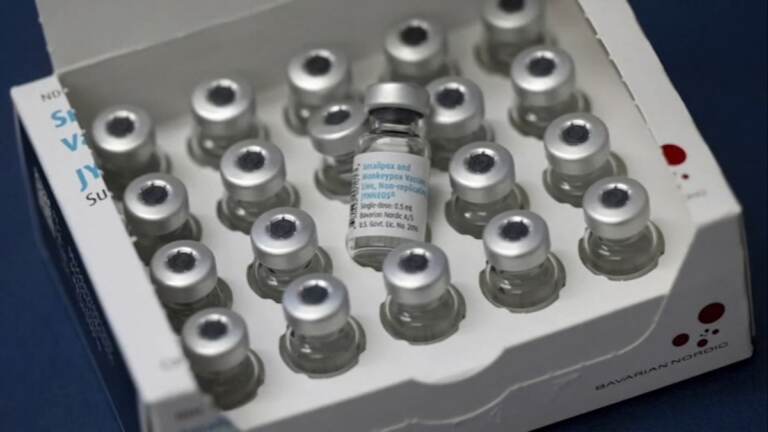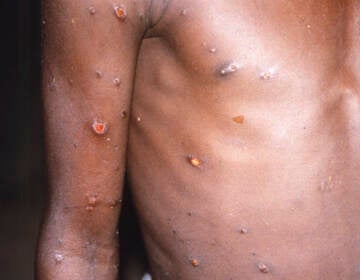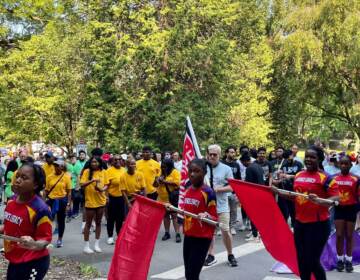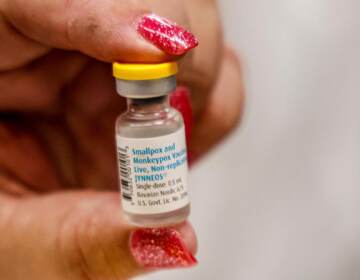Philadelphia clinics allocated monkeypox vaccines
Appointments for the monkeypox vaccine are offered only to existing patients by appointment only. Walk-ins will not be accepted.

Vials of monkeypox vaccine. (6abc)
Five Philadelphia-area medical clinics will soon offer monkeypox vaccines to existing patients who may have been exposed to the virus or who are considered “high risk.”
The city’s health department announced Monday it had provided vaccines for distribution to patients of the Mazzoni Center, Philadelphia FIGHT, Penn Presbyterian Hospital, the Drexel Partnership Comprehensive Care Practice, and Penn Medicine.
According to an update to the city’s monkeypox dashboard, the clinics will be reaching out to their patients to offer appointments. Walk-ins will not be accepted.
It’s the latest move in the city’s effort to curb the monkeypox outbreak in Philadelphia.
The current outbreak is most common among men who identify as gay or bisexual, but officials stressed that anyone is at risk of exposure through close physical contact.
6ABC reports Philadelphia has been allotted 2,625 doses of the JYNNEOS vaccine. Local officials said the priority is to get the shot to individuals who may have already been exposed to the monkeypox virus.
The JYNNEOS vaccine is administered in two doses, but Philadelphia health officials plan on getting as many doses out to as many people as possible. One dose is thought to provide some protection from the virus.
The CDC is reporting more than 2,900 infections nationwide. At least 55 of those are in Pennsylvania, 41 in New Jersey, and 3 in Delaware.
Local health experts warn that monkeypox cases are likely being undercounted and that limiting vaccine access could lead to more widespread infections.
Monkeypox is rarely fatal. Experts say most people can recover without treatment. Symptoms usually take about one or two weeks to show up after infection. Common ones include fever, headache, and fatigue, as well as a rash of raised lesions on the face and across the body.
“As more vaccine becomes available, more people will be made eligible to receive it and more clinics and clinic hours will be made available,” a health department statement said.
WHYY is your source for fact-based, in-depth journalism and information. As a nonprofit organization, we rely on financial support from readers like you. Please give today.







